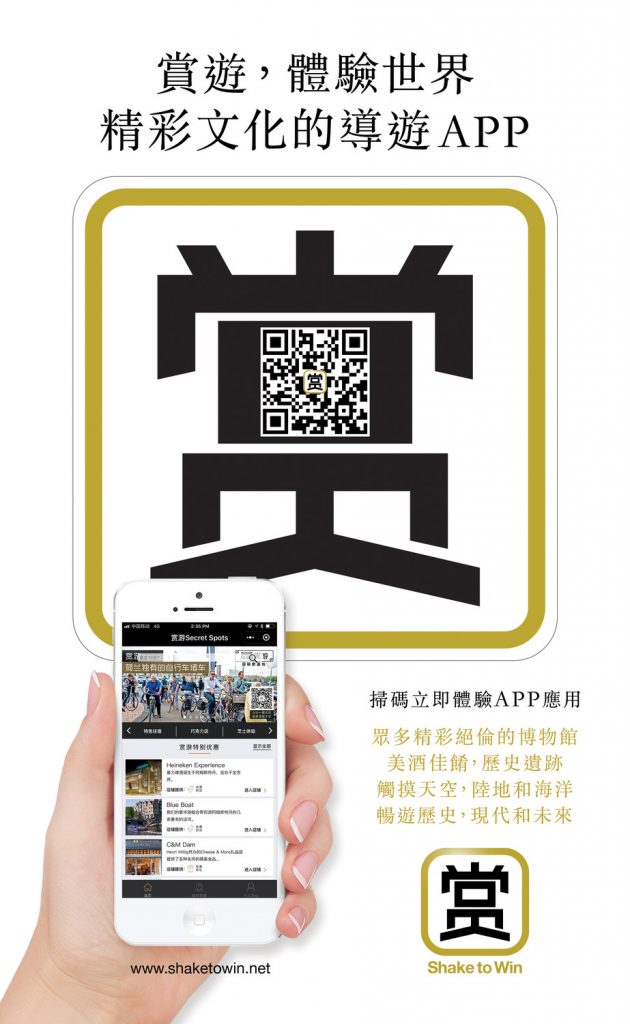Me, mommy, and daddy: Chinese independent family travel

The family is the building block of Chinese society. So, in this article, we explore the Chinese approach to family travel and how it relates to independent travel.
Chinese travellers are much more likely to travel abroad with their families than their Western counterparts— over 70% of all Chinese tourists travel with family, according to a McKinsey report, and according to the government research institute China Tourism Academy, 76% of all travel includes parents with their children. As far as independent travel is concerned, the Chinese who venture outside of their country also do not necessarily do it completely on their own. According to a survey carried out by consulting firm Resonance, although more millennials than older generations would choose solo travel (10% versus 6%, respectively), the majority of independent travellers prefer to travel with their loved ones, being “travel with kids” their top preference, followed by “travel with friends.”
While it is undeniable that family values have undergone and continue to go through major transformations all around the globe, they still run deep in China. Despite radical changes the country has gone through in recent decades, filial piety is still at the root of what parents expect of their children and vice-versa. Filial piety (xiao) is one of the three essential Confucian values alongside ritual (li) and humanity (ren), and is considered by many scholars the most fundamental of these values, as the family is the building block of Chinese society (as opposed to the individual in the West). In a nutshell, filial piety boils down to an attitude of demonstrating love and respect to one’s parents and other elders. This is notably achieved through obeying their wishes, looking after them when they are old, and working hard to support them and provide them with all the comfort possible. It is an eternal debt of gratitude (that can sometimes be taken to the extreme) children owe their parents for having given them love, support, and life itself. (We briefly explored “ritual” in our article about the gift culture in China.)
In addition to tradition, the one-child policy also has a role. As only children, Chinese millennials grew up in a time of economic growth and optimism, being the sole center of attention and investment of their parents and grandparents. Not only they are now expected to care for their elders, but they also invest in turn in their own children with the same effort as their parents did for them.
Returning the favor: Millennials travelling with their parents
While most family travel research, services, and marketing campaigns focus on parents travelling with small children, adult children travelling with their elder parents is a mode of travel not to be overlooked, especially where China is concerned. As previously mentioned, filial piety is a central pillar of Chinese culture and the Chinese have long been and still are raised to care for their elders, whereas in Western culture upbringing is more centered on total independence.
When travelling with their parents, post-80s generations plan their trips abroad with their parents’ needs and interests in mind. It is very customary of them to fund the trip, choose destinations that are more accessible in terms of infrastructure, and to use travel agencies to book transport and accommodation. The goal is to provide their parents with an experience as hassle-free, comfortable, and as welcoming as possible. These trips are more likely to be less adventurous, prioritizing places and activities that are prepared to receive and cater to Chinese visitors, taking into account their language, culture, and habits.
Post-90s millennials trips with their parents are a little different. They consider their parents as an influence in their travel decisions more than other generations do, but many also rely financially on their parents for their travels as younger generations are more likely to be at the start of their careers or not yet have an income, according to the Hotels.com 2017 Chinese International Travel Monitor report.
Financial considerations aside, the influence older generations have on these young adults and on independent travel is not to be underestimated. A growing number of post-2000s and post-90s Chinese young adults are encouraged and sent to study abroad by their parents, and during their stays in foreign countries—often Europe and North America—a family visit is often a part of the plan. Because students live in these countries, they naturally organize trips with their parents completely independently and assume the role of the guide, based on their acquired knowledge of the local culture. They also function as the family’s official translator, as their parents grew up in a China of a different time and often do not speak foreign languages or have had few opportunities to practice what they do know. Like for their post-80’s counterparts, these younger Chinese millennials take their parents’ needs and habits into deep consideration.
Lin Haihan, a former Chinese student in Milan, Italy, took her parents on a trip to Italy, Malta, Spain, France and other countries during her stay abroad. When interviewed by Chinese news agency Xinhua, she talked about the biggest change travelling with her parents as an adult represented for her:
“Everything went very smoothly. For me, the most lasting impression of this trip was the feeling of exchanging roles with my parents. Travel preparations used to be my parents’ job and I was there only to enjoy and wouldn’t pay much attention to how my parents felt when we travelled. Now I pay more attention to my parents’ feelings and my main concern is their wellbeing and enjoyment, ” Lin Haihan said.
The interest Chinese independent travellers show to have in culture and nature when travelling abroad may also be credited to their parents’ influence.
“Parents are very interested in foreign cultures and feel they are very different from China,” Shiguang, another Chinese student interviewed in the Xinhua article, reminisces about her experience with her parents during her studies in Spain. “And they love to take pictures,” she added.
Speaking about her parents’ preferences Lin Haihan said: “My father prefers historical and cultural monuments, and my mother prefers to see the scenery. So I will craft the itinerary in advance to try to meet my parents’ hobbies and needs.”
Older generations indeed tend to choose package group tours when travelling abroad, but this doesn’t mean they are any less interested in culture than millennials. They grew up in a China of a different time, with less economic resources, amidst political turmoil, and visa regulations at home and abroad were much stricter than now, meaning package group tours were often the only option, and old habits die hard.
Caring for and investing in the future: Millennials travelling with their children
When millennials are the parents, the focus of attention shifts towards their offspring. Much like millennials place their elder parents at the center of travel decisions when travelling with them, they base their family travel decisions on their children when they take their little ones abroad, including choice of destination. In this case, however, it is not about pleasing or paying respects, rather it is about education.
Of course, prioritizing children’s needs is something parents all over the world do when they travel, but in the case of Chinese parents and millennial parents, in particular, education and the child’s future are much bigger factors than leisure alone. Chinese millennial parents view a trip abroad as an opportunity to broaden their kids’ horizons: according to a 2015 study carried out by Chinese online travel agencies ly.com and mama.cn, 35% of parents consider international travel can enrich their children’s knowledge, and over 30% of them saw overseas travel as an opportunity to improve their children’s language skills. Fast-forward to now and things don’t seem to have changed much in that respect, as statistics from last year reveal that parents travelling with their children on educational and cultural tours are a growing trend.
Furthermore, according to a survey conducted by the International Luxury Travel Market and The Luxury Conversation, in the case of wealthier millennial families, their children are the biggest influence in their travel decisions. Services such as “kids’ club,” “kids’ menus,” and “local experiences/activities” were important for virtually all respondents of the survey.
Another curiosity is the role played specifically by mothers. Women are now those leading Chinese outbound travel, and mothers seem to be leading family travel, especially during summer. This is when school holidays occur and it is an occasion for affluent mothers who are not working to take their children abroad. Chinese online travel agencies such as Caissa have spotted the trend and are creating travel tours including art, history, music, modern technology, nature and wildlife, and local festivals itineraries targeted specifically for mothers with young children.
As much as package tours can buy families with small children some peace of mind, the fact millennials prefer to craft their itineraries independently represent an opportunity for destinations, small businesses, and cultural institutions, and having a travel agency as an intermediary is not a must. The Netherlands, for instance, are turning to WeChat to attract Chinese visitors interested in culture and history, and the Hague, in particular, launched a campaign on WeChat to promote family tourism, as a part of The Netherlands Board of Tourism & Conventions’ “Travel with Child, Holland First” campaign.
What if you don’t have the time, knowledge or resources to set up a WeChat account yourself?

Shake to Win connects Chinese independent travellers with authentic places and cultural experiences around the world. Because our users care about culture and so do we, Shake to Win offers local businesses who represent the local way of life an easy, hassle-free way to reach Chinese independent travellers.
We want our users to have the best, most authentic experience during their travels. We also want local places and businesses we love to be able to attract Chinese visitors who respect the local culture. Our app contains listings of experiences, businesses and cultural institutions selected by our team with both our users’ preferences and customer needs in mind.
The Shake to Win app also provides businesses with the possibility of offering our Chinese users incentives with only a few clicks. This is a thoughtful, culturally sensitive way to let travellers know long before they arrive at your doorstep that they are welcome at your shop and will be well received.
Joining Shake to Win is really easy. No need to know Mandarin, set up Chinese social media accounts, or even leave your office. Get a free listing on our app and let a new China get to know you.



